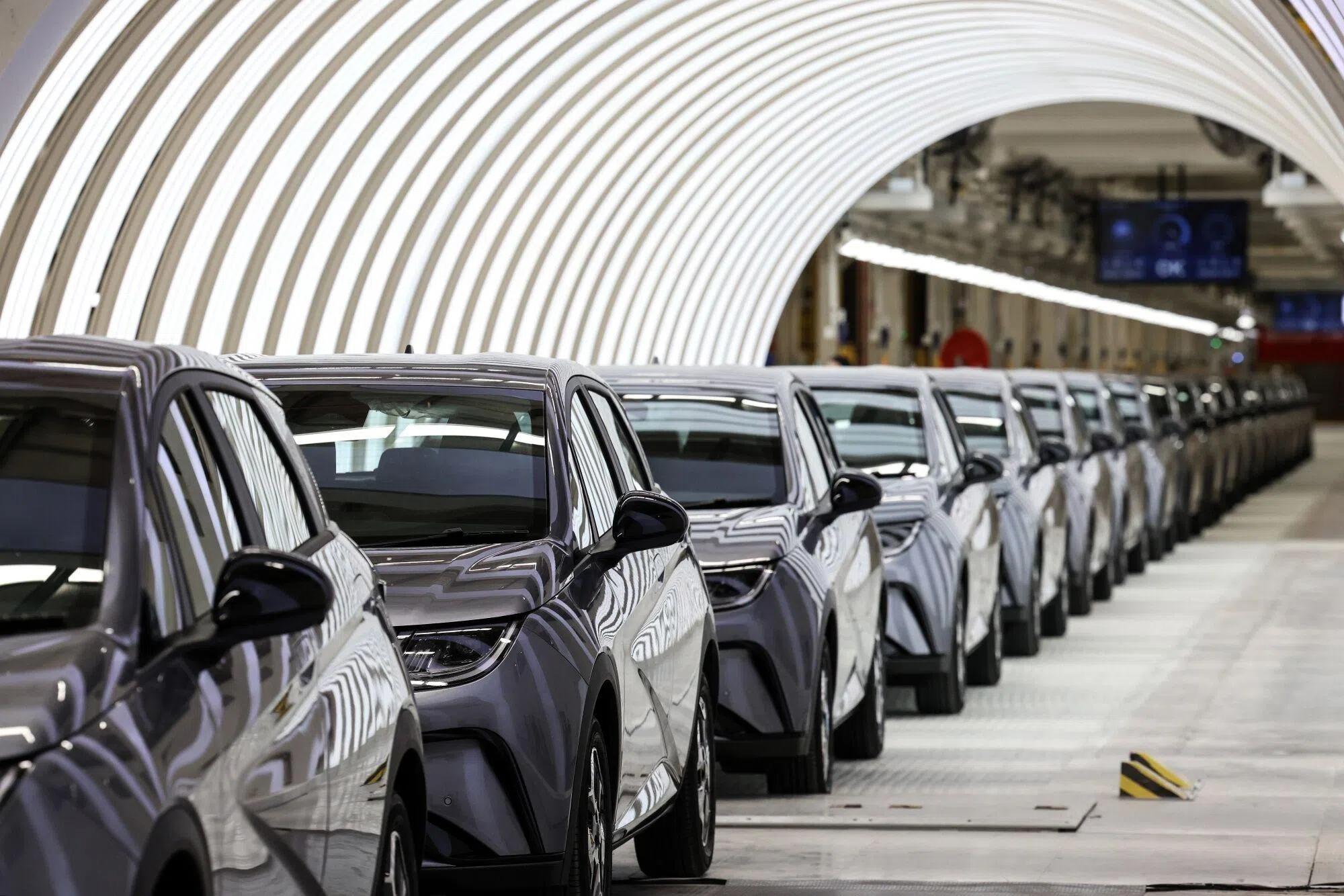FRESH from besting Tesla on quarterly revenue for the first time as an electric vehicle (EV) company, BYD now has legacy automakers in its sight.
The extraordinary sales volumes being pumped out by China’s best-selling car brand means BYD has a shot at beating Ford Motor in terms of annual shipments this year, a milestone that would cement its position as a top 10 automaker globally.
BYD kicked off the December quarter by selling a record half a million vehicles in October. That impressive number puts it nearly on par with Ford year-to-date and almost all analysts covering BYD expect the momentum to continue. The US automaker, which only reports global sales on a quarterly basis, has been averaging around 1.1 million vehicles a quarter for the past three such periods.
“Getting to four million is a stunning milestone,” auto industry consultant Michael Dunne said, referring to BYD’s reported annual target. “BYD will soon be seeing Ford in the rear-view mirror.”
Surpassing one of Detroit’s big three carmakers will be possible if BYD keeps up its strong run. Demand in China is in part being stoked by government subsidies encouraging people to trade in their older EVs or combustion engine cars, while BYD’s strong line up of hybrids is good for consumers who are not quite ready to make the switch to a fully EV.
Dunne, a former General Motors executive, described BYD ’s sales ramp up as “velocity without precedent”.
BT in your inbox
Start and end each day with the latest news stories and analyses delivered straight to your inbox.
BYD’s third quarter set the tone for what’s possible. The Shenzhen-based auto giant managed to outsell Ford by 40,000 units, delivering some 1.13 million mostly passenger cars, as well as a few thousand trucks and buses.
Legacy carmakers such as Ford are finding the competitive landscape increasingly tough as Chinese automakers expand everywhere from South-east Asia to Europe and Latin America. Nissan Motor, Volkswagen and Stellantis are all confronting similar crises around shrinking profits, excess capacity and bloated workforces.
Ford may find favourable support under President-elect Donald Trump, who despite his cosiness with Elon Musk, has pledged to rescind funding for the Biden administration’s signature 2022 climate law, which includes more than US$8.5 billion in incentives for individuals and families to decarbonise their lives.
BYD does not sell passenger vehicles in the US but that does not seem to be holding the company back much. Senior vice president He Zhiqi bragged on his Weibo account earlier this month that BYD increased production capacity by almost 200,000 units in the August to October period by hiring around the same number of people for its assembly and components businesses. BYD’s output for October was 534,003 units.
“BYD has no peer in the world right now,” Tu Le, at Detroit-based automotive advisory firm Sino Auto Insights, said. “Legacy automakers just seem to be collateral damage as BYD goes like a freight train towards becoming the largest automaker in the world.”
Nissan, in the headlines last week for all the wrong reasons as it slashes payroll, production and its forecasts for this fiscal year, may be another scalp for BYD. The struggling Japanese automaker is on track to fall behind BYD in terms of revenue this year.
Meantime, BYD is also riding high in terms of the most valuable automakers by market capitalisation.
Back in June 2022 when BYD’s Hong Kong-listed stock hit an all time high, the Chinese carmaker was worth more than Ford, GM and Jeep brand owner Stellantis – combined. It almost achieved that goal again last month as the US automakers’ woes deepened but didn’t quite get there. The way things are going, BYD pundits surely will not have to wait too long. BLOOMBERG







